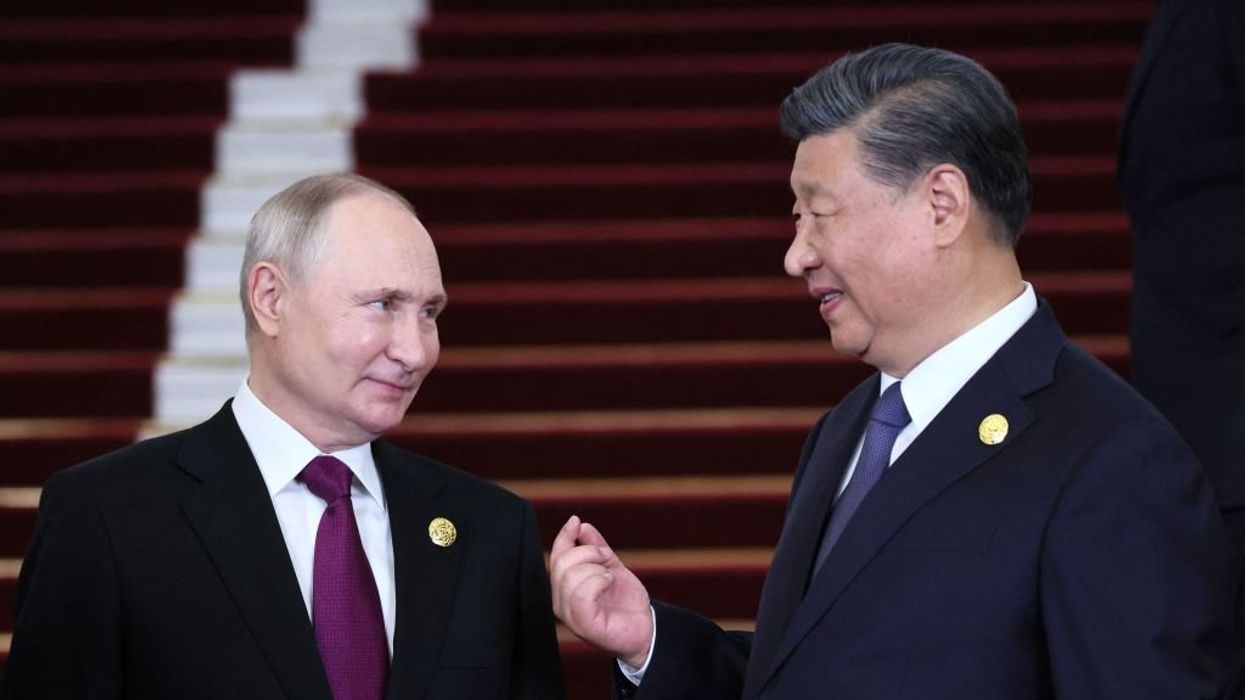
Photo by SERGEI SAVOSTYANOV/POOL/AFP via Getty Images

Russia and China appear have to joint aspirations of building a nuclear reactor on the moon to power future settlements. According to Yuri Borisov, the CEO of Russia's equivalent to NASA, Roscosmos, the construction of the reactor would be part of an unmanned mission relying on those technological solutions the two nations intend to master in the latter half of this decade.
"Today, we are seriously considering a project to deliver to the moon and mount a power reactor there jointly with our Chinese partners somewhere between 2033 and 2035," Borisov said during a talk at the World Youth Festival in Krasnodar Krai, Russia.
The work on the reactor would be automated on account of radiation.
Reuters noted that nuclear power is regarded as necessary because solar panels apparently do not generate enough electricity to power future lunar settlements.
In addition to a nuclear reactor and an "interplanetary station" on the moon, Borisov suggested Russia was also "working on a space tugboat. This huge, cyclopean structure that would be able, thanks to a nuclear reactor and high-power turbines ... to transport large cargoes from one orbit to another, collect space debris, and engage in many other applications."
Russian state media noted that Roscosmos and China National Space Administration signed an agreement in March 2021 to cooperate on the development of an international lunar research station. To advance this project, Beijing plans on sending three missions, Chang'e 6, Chang'e 7, and Chang'e 8.
The construction of a nuclear reactor on the moon would be part of a subsequent series of lunar missions.
The initial lunar missions, scheduled to begin in 2026 and proceed through 2028, would test key technology and set the groundwork for a robotics base where experiments and research could be conducted remotely.
CNSA plans to launch a relay satellite to work in conjunction with the Chang'e 6 mission sometime this year, reported CNN.
China appears to have been emboldened in its cosmic pursuits after the successful construction of its orbital Tiangong space station in 2022 and its rover's journey to the dark side of the moon in 2019.
Gen. Stephen Whiting, the U.S. Space Command chief, told the Senate Armed Services Committee last week that space has become an "expanding security challenge" and that communist China was growing its "military space and counterspace abilities at a breathtaking pace," reported The Hill.
On Tuesday at the 2024 Space Summit, Whiting indicated that Russia, too, poses a "formidable" challenge to the U.S. in space even though its first lunar mission in decades, Luna 25, crashed into the moon's surface last year.
Newsweek indicated that Borisov's announcement of possible fission on the moon has the wonks at the Institute for the Study of War concerned about a fusion of Russia and China's long-term strategies.
The ISW, a think tank based in Washington, D.C., suggested that Borisov's remarks were "indicative of warming relations and Chinese willingness to foster a long-term strategic partnership with Russia to posture against and possibly threaten the West."
"A strategic space partnership with China suggests that Russia would be unlikely to use this or similar technology against China and that both states would mutually benefit from Russia's posturing against the West through space and satellite technology," added the ISW.
The strategic ties between China and Russia have been strengthening in recent years, especially economically.
The Straits Times noted that Sino-Russia trade hit a record high of $240 billion last year.
China's foreign minister Wang Yi said Thursday that the two powers have created "a new paradigm of great power relations that is completely different from that of old Cold War era."
According to Bonny Lin, the director of the China Power Project at the Center for Strategic and International Studies, Russia's war against Ukraine has helped to solidify Moscow's relationship with Beijing.
Lin offered various reasons to account for this solidification, but noted that Western efforts to economically punish Russia over its invasion of Ukraine especially "amplified concerns in Beijing that Washington and its allies could be similarly unaccommodating toward Chinese designs on Taiwan."
Like Blaze News? Bypass the censors, sign up for our newsletters, and get stories like this direct to your inbox. Sign up here!